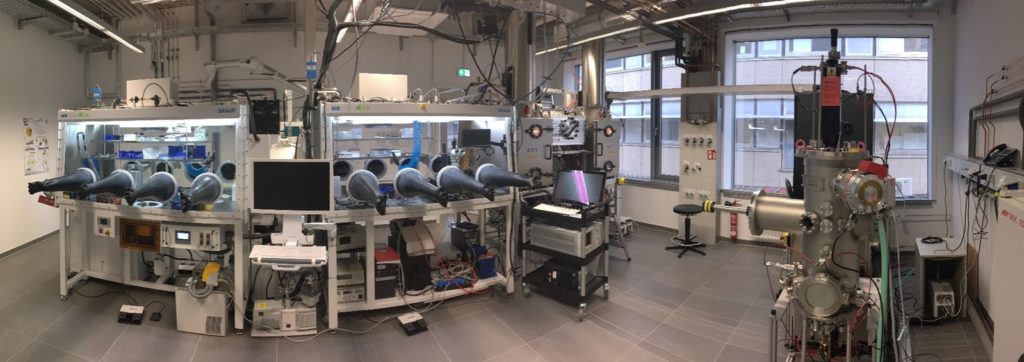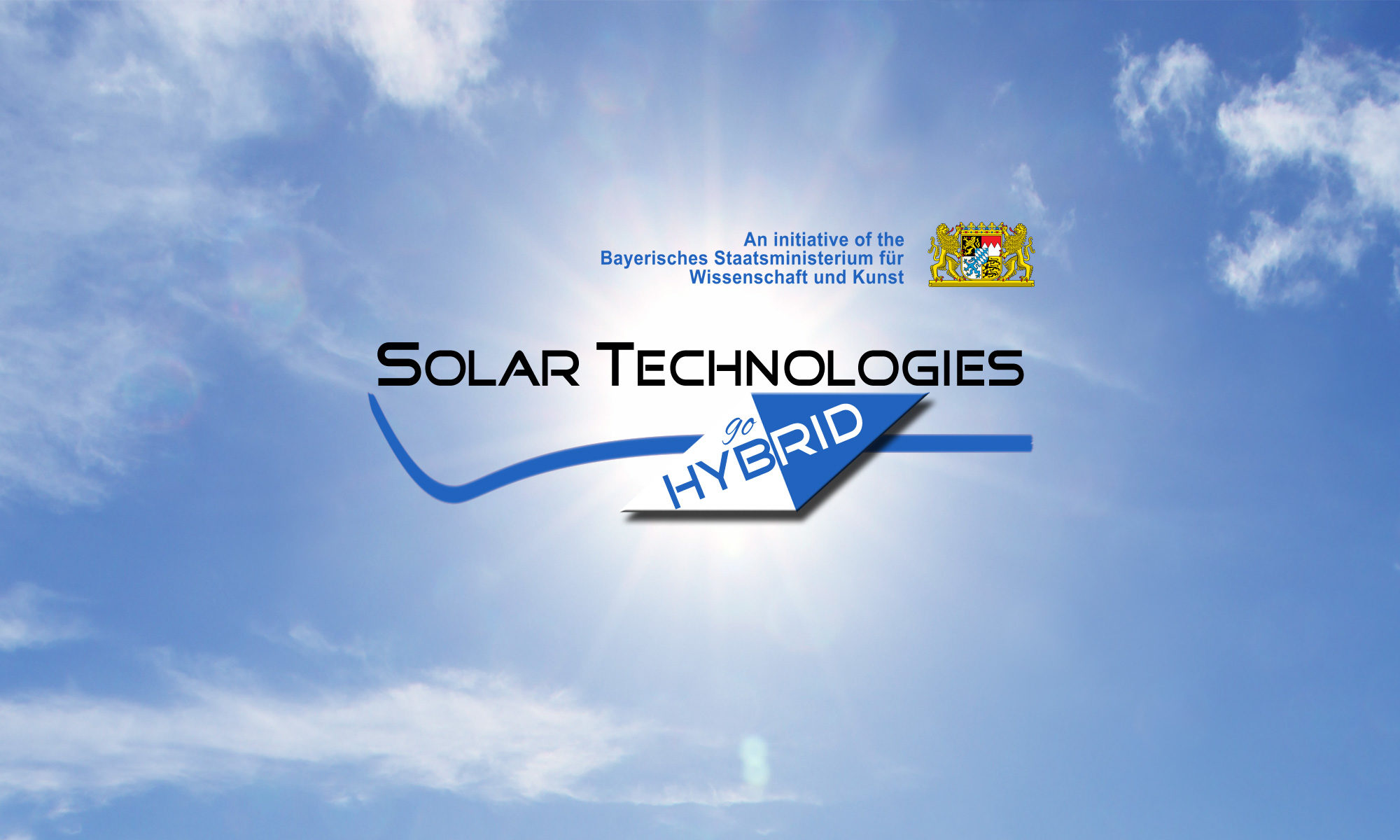Infrastructure measures formed an important part of the first 5-year SolTech funding period (2012-2016). The Center for Nanosystems Chemistry (CNC) at the Julius Maximilian University in Würzburg is one of two new buildings financed within the SolTech project and built immediately after the Soltech launch in 2012.
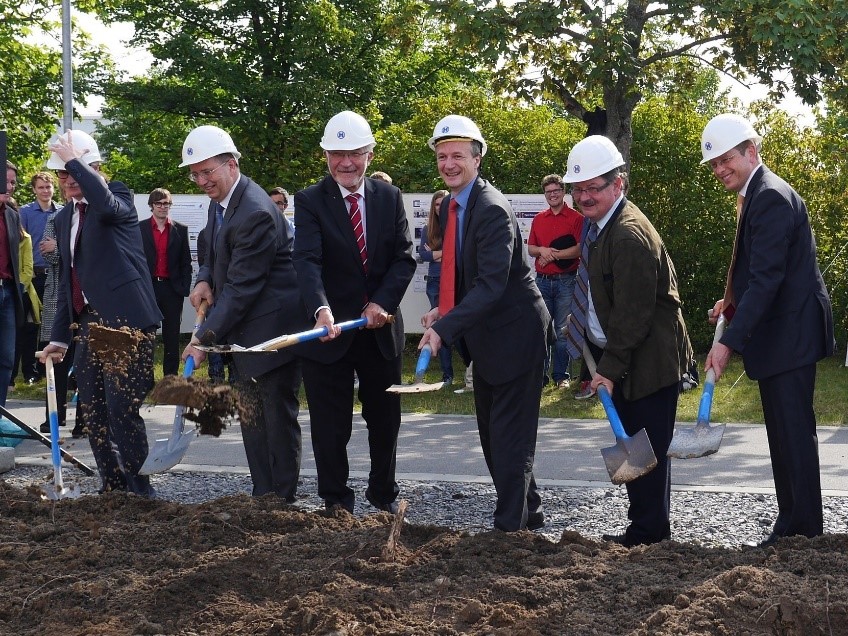
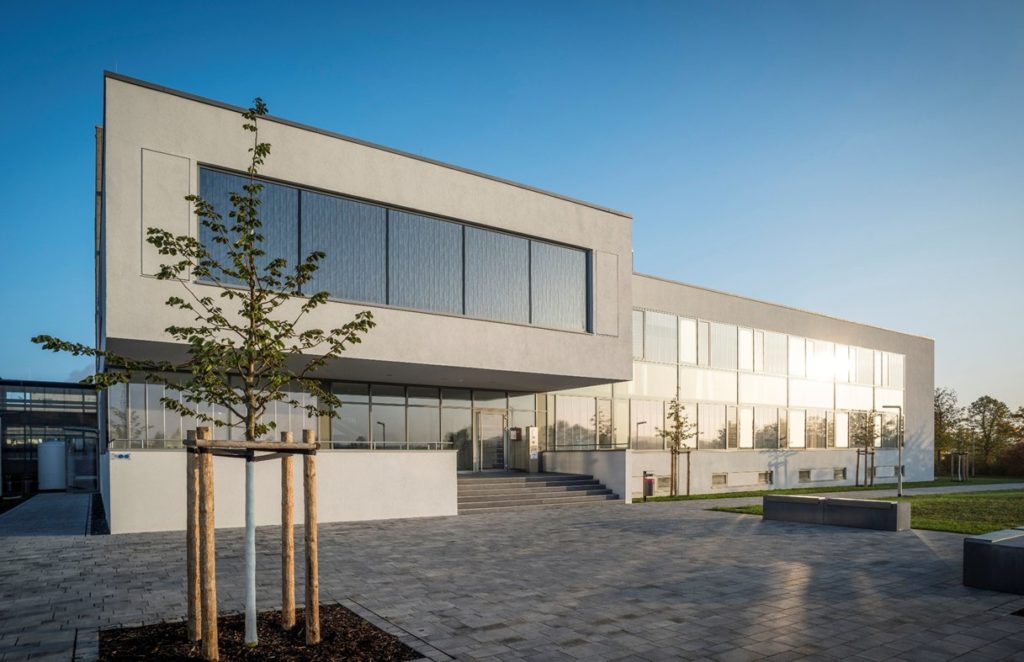
The newly established (2016) research building located on the University of Würzburg’s Hubland Campus offer approximately 1,500 square meters of space for laboratories, offices and state-of-the-art research infrastructure. “If you want to take the lead in the international competition for researching technologies of the future, you have to be able to rely on top-notch technical infrastructure. The 8.75 million euros worth of funding from the Free State of Bavaria and the university are a good investment” said Bernd Sibler, Secretary of State in the Bavarian State Ministry for Education, Science and the Arts.
The center is part of the research network “Solar Technologies Go Hybrid (SolTech)”. Five Bavarian universities participate in the network. “The subject we are promoting here is really important and very exciting” said Sibler. SolTech’s aim is to develop innovative concepts to convert solar energy into electricity and to design novel energy carriers in well-equipped laboratories, the so-called “Key Labs”.
“The inauguration of the CNC is therefore crucial to solve a central question of our society: How can we achieve and secure a sustainable energy supply?” added University President Alfred Forchel.
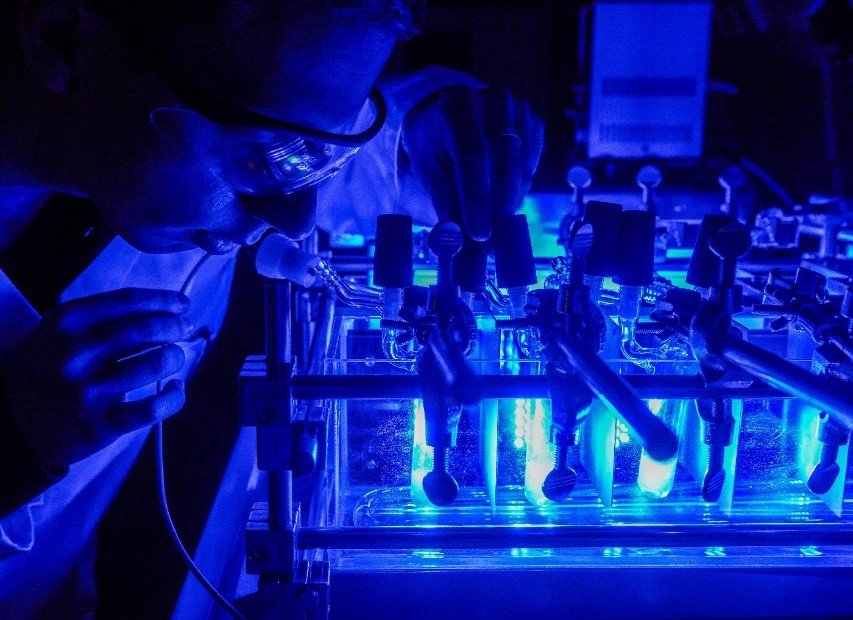
At the same time, CNC represents another important milestone in the University of Würzburg’s pursuit to open up seminal fields of research and promote the transfer of new research results to industry and society. Würzburg’s mayor Christian Schuchardt expressed his pride at accommodating another “trendsetting think-tank” in his city and thanked everyone involved from the university and the state government.
Professor Frank Würthner, the center’s initiator and manager, also emphasized the CNC’s relevance for the future: “Introducing young scientists into the relevant topics related to our most sustainable energy source, the sun, is the best investment we can make into the future.”
